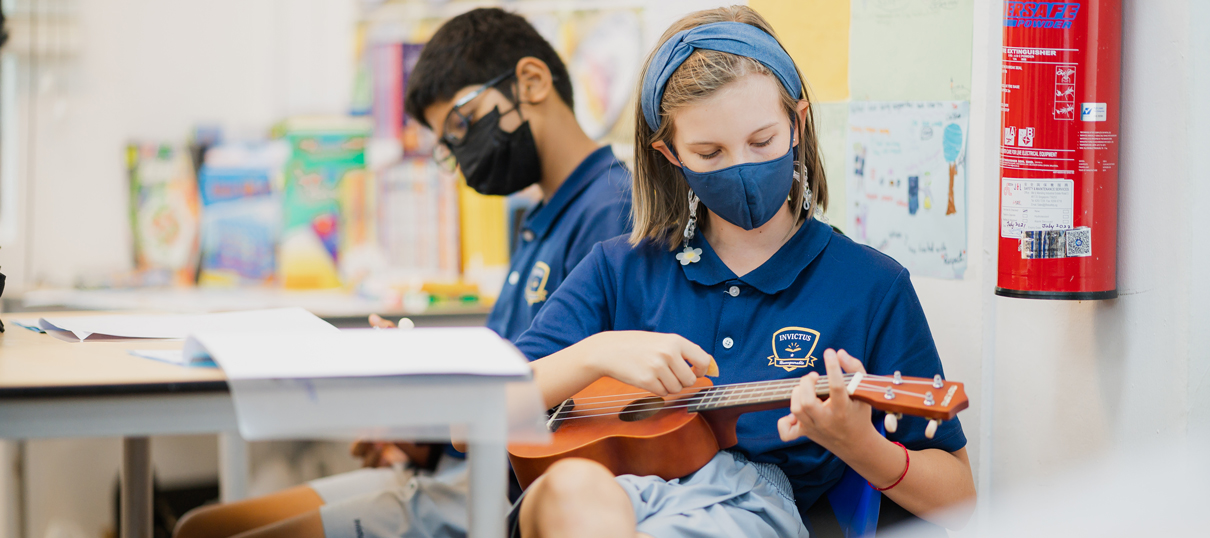- 092 222 868 (KH, ENG)
- info@invictus.edu.kh
- Cambodia
Private School in Cambodia
The ability to accept and deal with failure is an important life skill that parents have to teach their children. In an increasingly performance-driven society, children might have the impression that failure means they are not good and never try again.
Indeed, experts have noted that the way adults perceive failure and communicate about failure can influence a child’s mindset. Children often internalise the messages they receive from their parents and the earlier parents teach children how to accept and bounce back from failure, the easier it will be for the child to cope with setbacks.
How to Teach Your Children to Accept Failure
If you are wondering how you can help your child to accept and learn from failure, here are 7 tips we hope might be useful for you.
- Help them develop problem-solving skills from every episode of failure
In the real world, your child may encounter many different problems which do not have a clear and simple solution. They will need to think critically and apply themselves in many ways to solve issues. So with each episode of failure, take the time to discuss what type of problem-solving skills or approaches they could have applied and how effective these solutions were in solving that problem. That in itself is an important life skill that children need to learn.For example, if you want to teach your child how to first approach failure, it’s important to teach them the skill of using the ‘right’ words to reframe the situation when they fail. This concept of normalising what it means to struggle and fail is a skill that doesn’t come naturally to children and needs to be taught.
- Encourage your children to have a growth mindset - ask them what they can learn from failure
Whether it’s a toy-related conflict, a tough mathematical equation, or negative peer pressure at school, children will face problems and challenges on a daily basis. As parents, you won’t always be there to solve problems for your child or to help them bounce back from failure. Teaching them how to reflect on their mistakes, learn and grow will inculcate the message that effort is more than innate ability. This is the idea of having a growth mindset, as introduced by psychologist Carol Dweck, which has helped educators and parents understand how successful individuals became good at their skills or jobs.
Once they learn that inner talent is not everything, and they have to fail in order to be better at what they want to achieve, it is easier for children to learn to accept failure. They also have more self-awareness and gain self-confidence in assessing failure.
Teach the child that when they really want to be good at something, every episode of failure instead should strengthen their determination toward reaching their goals.

- Let them discover their passions and embrace failures
As parents, you might want your child to be the next Picasso or Steve Jobs. Or perhaps you’ll like them to be the next track star at the Olympics. But the reality is that some physical attributes are required for certain sports. And a good eye for art or a good ear for music can only be trained up to a certain level. Does that mean then, that exposing them to different sports and arts is a futile attempt? Not necessary. It is in fact a good idea to place them in a school environment where they are exposed to different programs with varied experiences. This gives them the chance to learn what they might enjoy doing in the future.
More importantly, exposure to interesting experiences teaches other important life skills such as critical and creative thinking. It also strengthens their interpersonal skills. They might not have the height to become the best at basketball, but they learn how to work with their teammates.
As renowned American writer Kurt Vonnegut says, it’s not about being good but about having wonderful experiences with different skills.
- Accepting failure helps them learn to stay humble when they achieve success in future
When young children become successful very quickly at a young age, they might lose sight of who they are, and what they stand for. Just think of child pop stars who peak at a very young, achieving huge success in their careers. As they mature and become young adults, their personal development is stunted. They feel lost and oftentimes decide to quit being a celebrity completely. When a young child fails to achieve a goal at a young age, it only means they have time to develop their skills and become better at what they do. When they have finally accomplished their goals, they will know what the struggle is like, and be more willing to help others who were once in their spots. This struggle is actually good for growth, as it increases their emotional intelligence to sympathise with others when it is needed. Having the life skill to think from another person's perspective will help them to communicate effectively and build healthy relationships.
- As long as they have put in their best effort, there should be no regrets
Ultimately, learning to manage their emotions is an important skill that they need to learn. Emotional agility as pioneered by psychologist Susan David is the ability to get unstuck and move on in life is going to be an important life skill. Children need to be in an environment where they are taught how to verbalise how they feel and understand that feelings come and go. When emotion management is taught, they can learn to accept that negative feelings about failure are just feelings. If they know not to take failure to heart, they will be able to move on easily.Acceptance of Failure and the Willingness to Try
Overall, when children learn to accept failure at a young age, they grow up internalising the message that failure is part of growth. They will be less afraid to try new things and gain stronger confidence in making friends. Of course, the school environment is an important factor when it comes to helping the child learn to accept failure and build resilience.At Invictus International School Phnom Penh, learning takes place both in and outside of the classroom. The school encourages students to explore, develop and pursue skills and abilities throughout their learning journey at Invictus. This provides a platform for them to try various experiences and when they fail, they can apply problem-solving skills to get unstuck and move on. Educators are also dedicated to helping students gain a wider perspective on failure.
If you are interested to hear what other important life skills Invictus can teach your children when they are enrolled in the school, contact us now.

